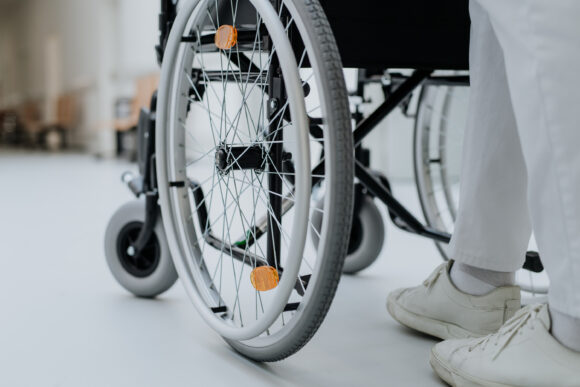The U.S. Supreme Court has passed on deciding whether private citizen “testers” who search online for and then sue companies that appear to not be in compliance with federal disability regulations have standing to sue.
However, the high court advised that it could take up the question of standing of so-called testers in the future even as it dismissed the case before it as moot because the tester withdrew her complaint.
The case before the high court involved a tester, Deborah Laufer, who sued Acheson Hotels because the website for its Coast Village Inn in Maine did not have information about accessibility for disabled guests as reservation regulations under the Americans with Disability Act (ADA) require.
Laufer had no intent on staying at the inn but was looking for businesses to sue for non-compliance with the ADA regulations. She has filed multiple lawsuits over the years like the one she filed against Acheson Hotels.
Ordinarily, the hotels settle her claims and pay her legal fees. But some have resisted, arguing that Laufer is not injured by the absence of information about rooms she has no plans to reserve. Only plaintiffs who allege a concrete injury have standing to sue in federal court. These hotels have argued that she is suing to enforce the law rather than to remedy her own harms.
The District Court for Maine concluded that Laufer lacked standing and dismissed her complaint. The First Circuit reversed, relying primarily on a case in which a tester had standing to sue under the Fair Housing Act.
When Acheson Hotels petitioned the Supreme Court for certiorari, Laufer agreed. She highlighted that the circuits were split as to her standing and argued that clarity from the Supreme Court is “badly needed.”
Laufer’s lawsuits and activism have “generated a circuit split,” the high court justices acknowledged. The Second, Fifth, and Tenth Circuits have held that she lacks standing; the First, Fourth, and Eleventh Circuits have held that she has standing. In March, the Supreme Court agreed to take this case from the First Circuit to resolve the split.
The question before the court was: Does a self-appointed Americans with Disabilities Act “tester” have Article III standing to challenge a place of public accommodation’s failure to provide disability accessibility information on its website, even if she lacks any intention of visiting that place of public accommodation?
But the Supreme Court decided against answering that question and resolving the circuit split after the case took an unusual turn. The U.S. District Court for the District of Maryland suspended Laufer’s lawyer from the practice of law for defrauding hotels by lying in fee petitions and during settlement negotiations. Following these revelations, Laufer voluntarily dismissed all of her pending suits with prejudice, including her complaint against Acheson Hotels.
The high court had already received briefs and heard oral argument. Acheson Hotels urged the court to proceed anyway to settle the standing issue, warning that if the court dismissed this case for mootness, the standing issue might not come back anytime soon.
While Laufer has disavowed the intention to file any more ADA tester suits, others will file in the circuits that sided with her, and hotels will settle, Acheson Hotels argued. “Why would any hotel take a case this far,” Acheson asked, “if the respondent can evade our review by abandoning a claim rather than risking a loss?”
The Supreme Court justices said that while they were free to decide the standing question at this time, and they were sensitive to Acheson’s concern about litigants manipulating the jurisdiction of the court, they declined to settle the matter now because they were not convinced that Laufer abandoned her case in an effort to evade the court’s review.
The court concluded, “Laufer’s case against Acheson is moot, and we dismiss it on that ground.”
While the justices passed on this opportunity to settle the standing issue, they indicated a willingness to do so at some point: “We emphasize, however, that we might exercise our discretion differently in a future case.”
The judgment was vacated and remanded to the U.S. Court of Appeals for the First Circuit with instructions to dismiss the case as moot.
Justice Amy Coney Barrett delivered the opinion of the court, in which Chief Justice John Roberts and Justices Samuel Alito, Sonia Sotomayor, Elena Kagan, Neil Gorsuch, and Brett Kavanaugh all joined. Justices Clarence Thomas and Ketanji Jackson filed opinions concurring in the judgment. Thomas agreed that the case is moot but wanted the court to proceed to answer the standing question. He said he does not believe Laufer had standing to sue.
Was this article valuable?
Here are more articles you may enjoy.


 Credit Suisse Nazi Probe Reveals Fresh SS Ties, Senator Says
Credit Suisse Nazi Probe Reveals Fresh SS Ties, Senator Says  These Five Technologies Increase The Risk of Cyber Claims
These Five Technologies Increase The Risk of Cyber Claims  Canceled FEMA Review Council Vote Leaves Flood Insurance Reforms in Limbo
Canceled FEMA Review Council Vote Leaves Flood Insurance Reforms in Limbo  US Will Test Infant Formula to See If Botulism Is Wider Risk
US Will Test Infant Formula to See If Botulism Is Wider Risk 